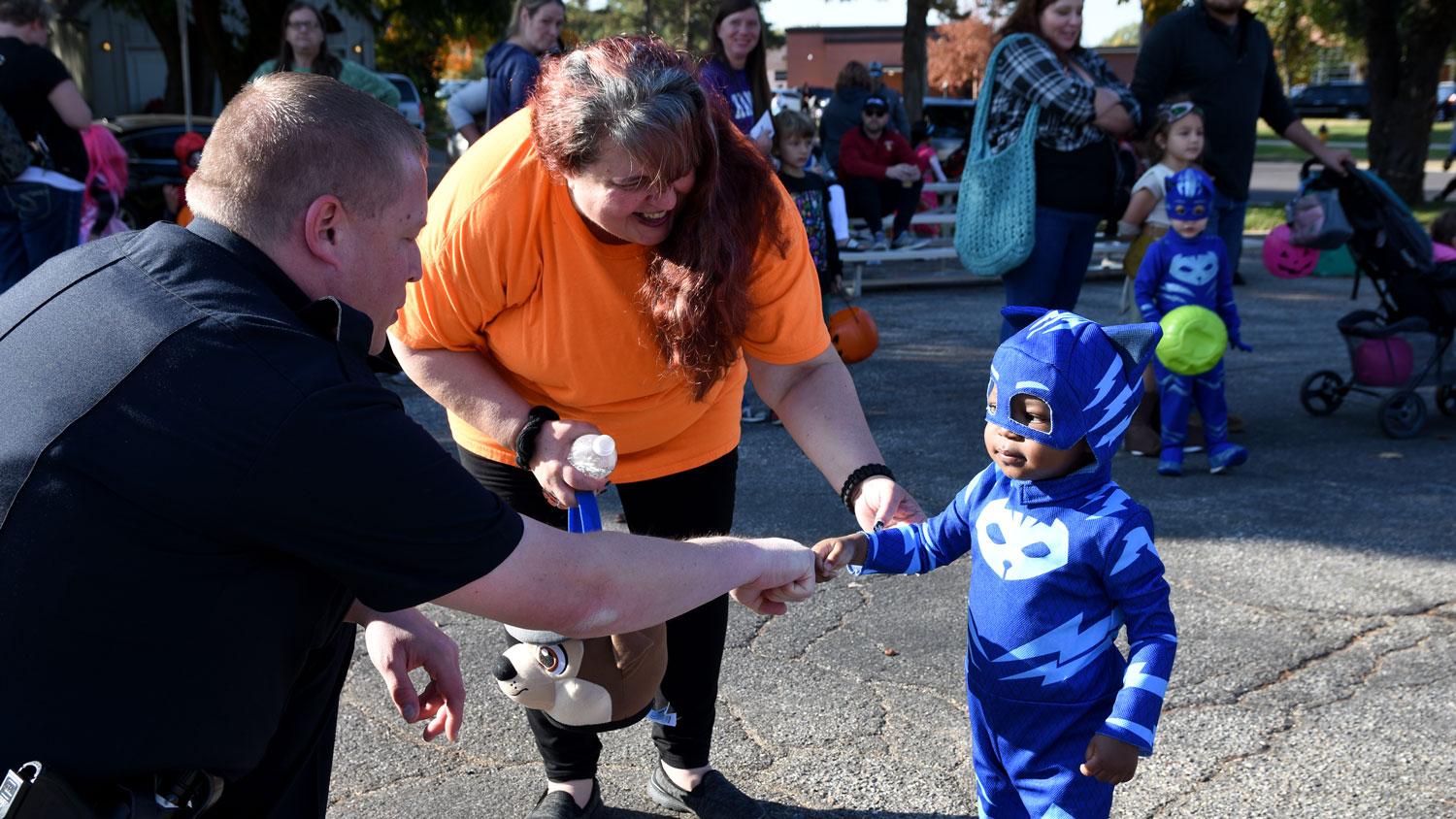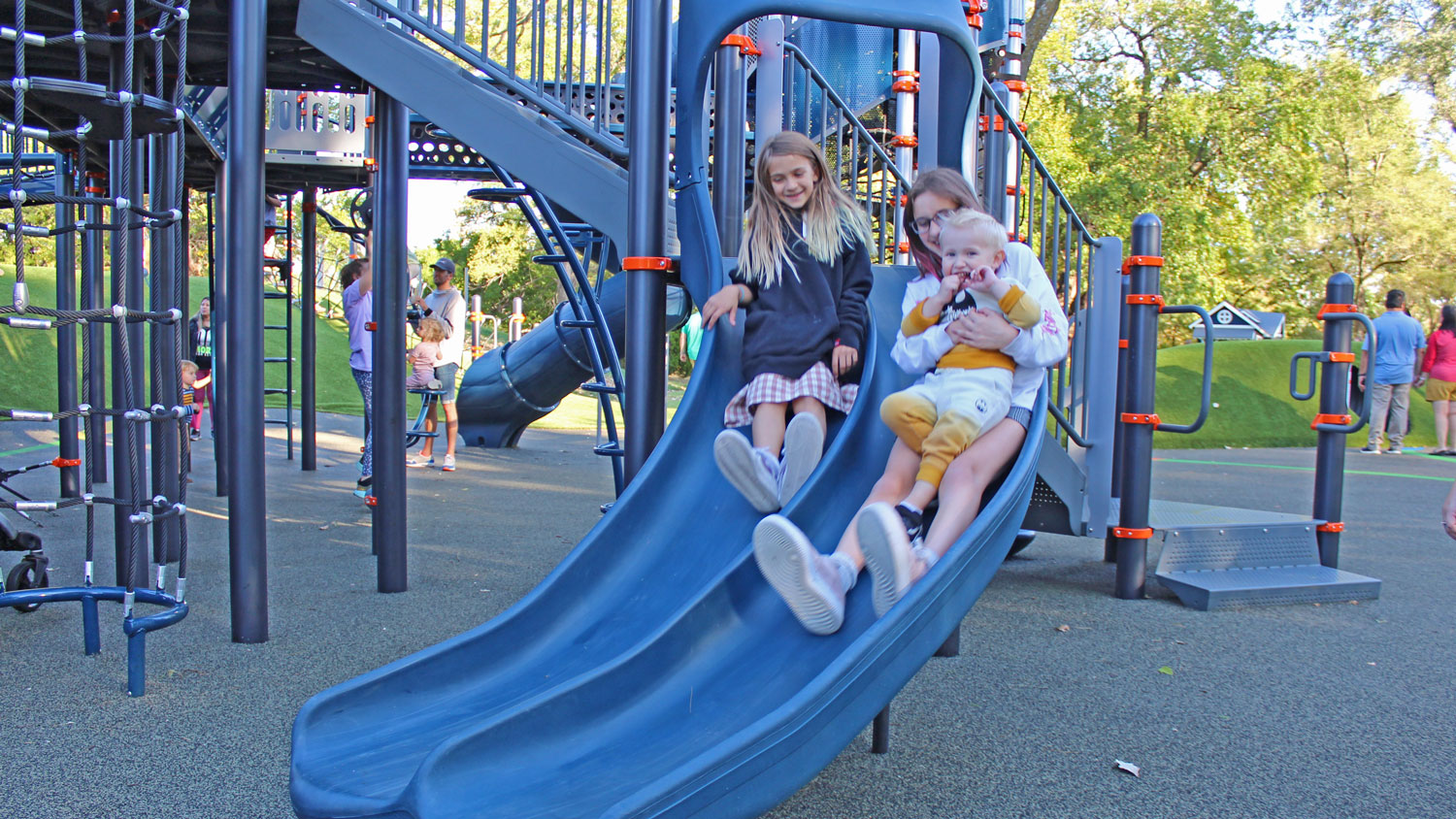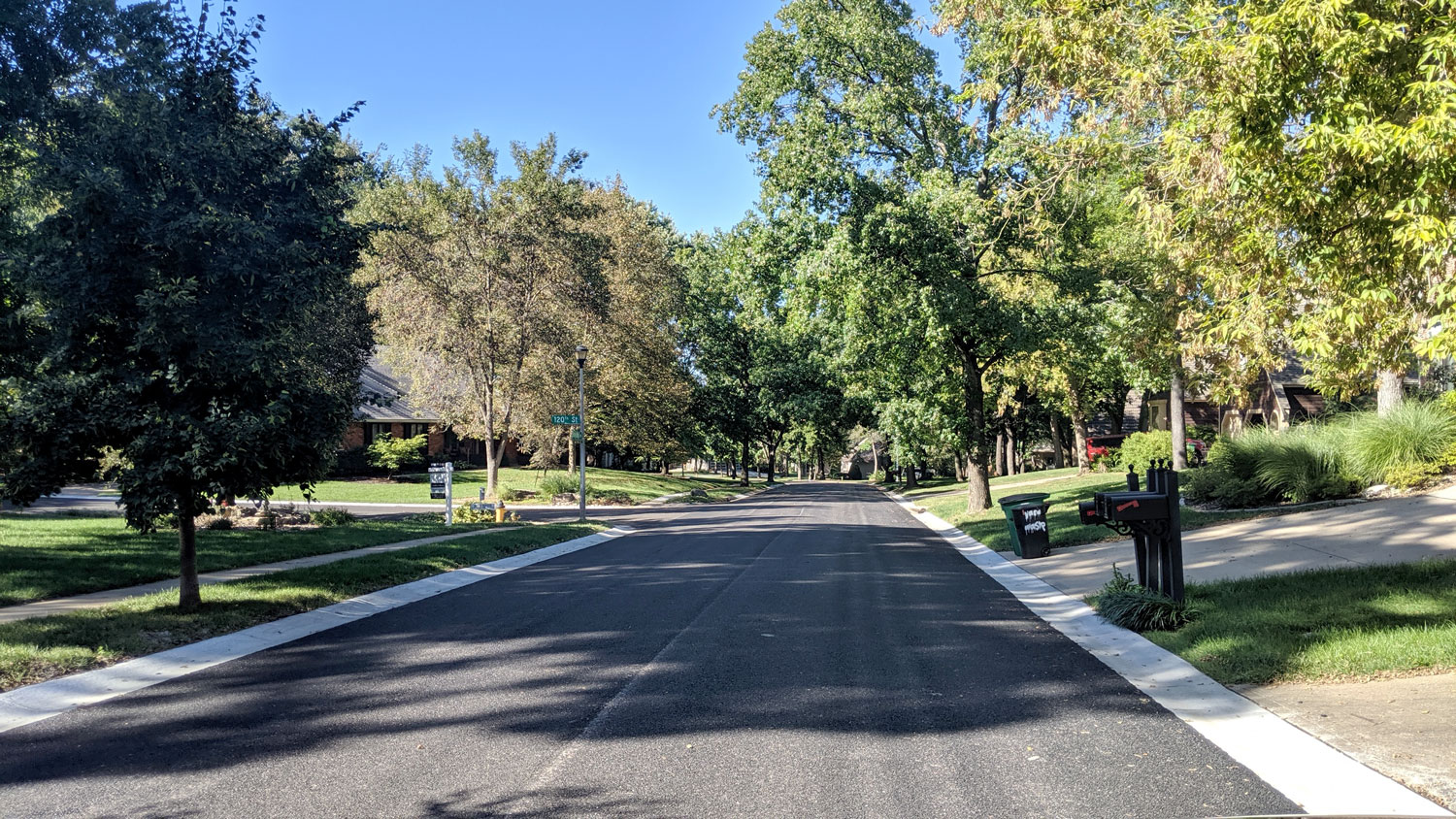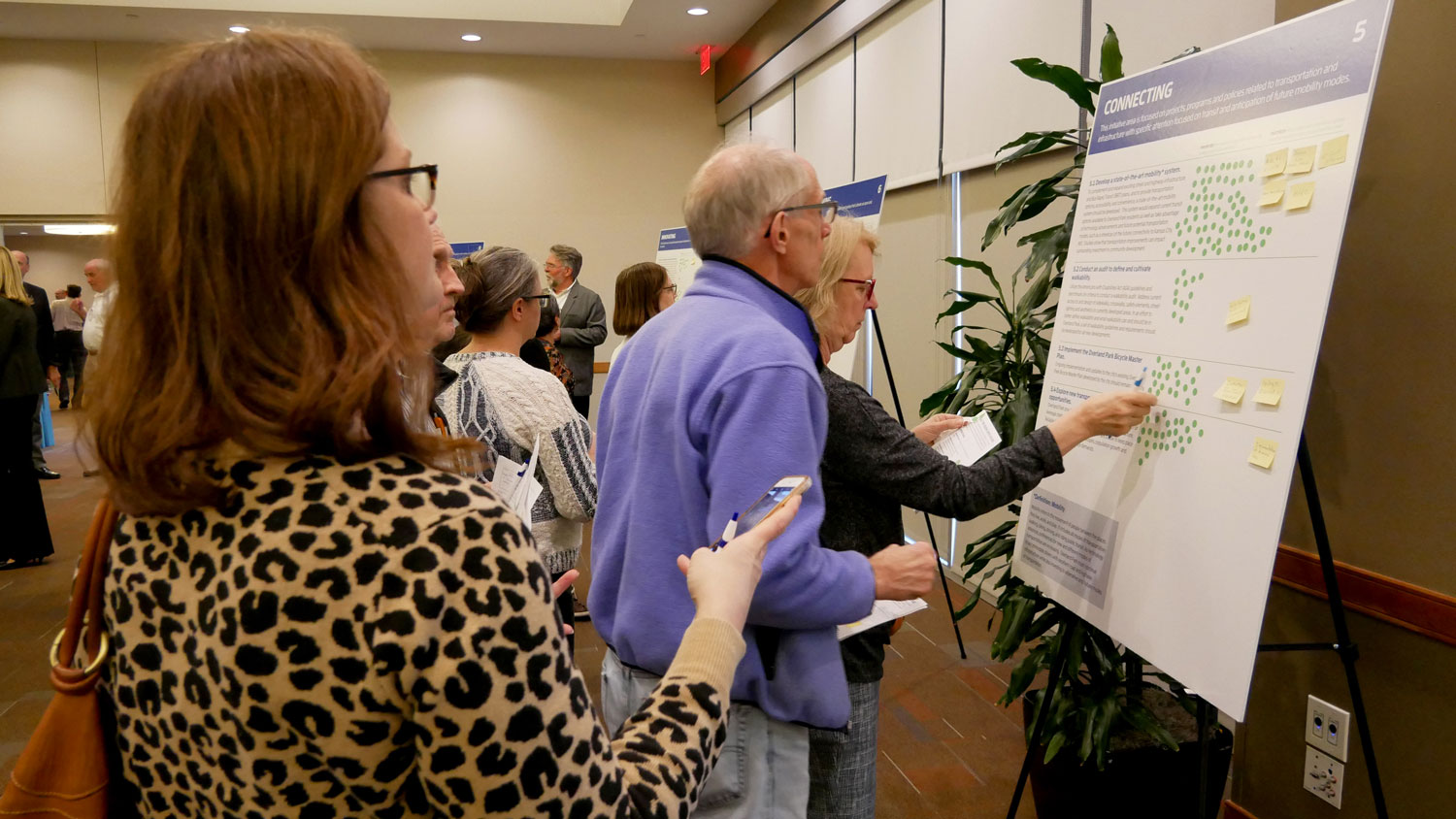Strategic Goals
The City of Overland Park’s formally-adopted strategic goals guide City initiatives, projects, programs and events. The strategic goals are intended to reflect the values of the community and organization.
Each of the four goal areas was inspired by priorities from adopted budgets; supported by data from the community survey; and are consistent with Forward OP, the community’s vision.
Each goal area has high level initiatives which can be linked to action items City staff take, which can then be linked to performance measures to show the City’s progress on those goals.
Each goal includes a list of initiatives and projects related to that goal. Goal area projects are not inclusive of all the City’s projects and priorities but include many items that are of interest to the community.

Goal 1: Safe + Healthy Neighborhoods
To create and sustain the protection and security of life and property that allow for freedom of movement, tranquility in the community and peace of mind for the continuance of a high quality of life.
2023 Initiatives
- Attract and retain a diverse, talented and engaged workforce (specific to police and fire departments).
- Focus on responses to mental health related issues (Overland Park Crisis Action Team).
- Engage in and continue to promote community policing and fire prevention by building trust with residents.
- Evaluate neighborhood risk factors and implement strategies to address identified needs.
- Data to be analyzed and reported includes absentee ownership, median appraised property value, rate of major crimes, property maintenance violations and low or moderate income levels.

Goal 2: High Quality of Life
To create and sustain the highest quality of life for the residents of Overland Park by seeking the proper and most effective use of land and preservation of natural resources; create safe, attractive spaces that enhance a sense of community; and by facilitating desirable living, working, economic and recreation opportunities for all.
2023 Initiatives
- Update strategic and long-range plans, including the Comprehensive Plan, Parks and Recreation Master Plan, Urban Forest Master Plan and Electric Vehicle Master Plan.
- Create safe, attractive spaces that enhance sense of community, including completing construction and opening of the LongHouse and implementing the Farmers Market design plan.
- Evaluate Enterprise Operations, including the Scheels Soccer Complex fee proposal and Visit Overland Park Sports Tourism Study recommendations.
- Begin preparations for the 2026 World Cup.

Goal 3: Infrastructure + Connectivity
To create and sustain the installation, maintenance, management and operation of multi-modal systems to improve traffic flow and mobility, including roads, bridges, stormwater, green infrastructure, bike paths and pedestrian walkways which are accessible, cost effective, safe, efficient, well maintained, compatible with the environment and visually pleasing.
2023 Initiatives
- Review and recommend components of the Infrastructure Advisory Group recommendations for implementation and reduce reliance on chip seal over time.
- Review of Neighborhood Street Reconstruction Resolution.
- Oversight and implementation of Capital Improvement Plan.
- Additional topics for evaluation include a complete streets resolution, streambank erosion resolution and traffic calming resolution.

Goal 4: Government Accountability
To create and sustain fiscally responsible City services and improve the public trust by:
- Ensuring sustainable and equitable revenue streams;
- Expanding and attracting business for job creation;
- Collaborating with intergovernmental partners;
- Using technology to be responsive to resident needs; and
- Providing transparency through communications and active engagement opportunities.
2023 Initiatives
- Maintain a responsible and sustainable fiscal position: AAA bond rating.
- Attract and retain a diverse, talented and engaged workforce reflective of the current competitive market.
- Reduce risk of cyber-attack by investing in cybersecurity.
- Maximize economic impact of the Overland Park Convention Center.
- Seek federal and state funds to leverage funding streams.
- Evaluate qualifications based selection process resolution for professional services.
Strategic Frameworks
Strategic frameworks are ideals that wrap around each of the goals and all of the City’s business. They focus on Overland Park being a sustainable, welcoming community.
Sustainability
The City of Overland Park views sustainability as reflected in a simple model that consists of three pillars: environmental sustainability, economic sustainability, and social sustainability. These three pillars are interrelated; sustained community wellbeing is not achievable without addressing all three.
The most widely accepted definition of sustainable development emerged from the United Nation’s Brundtland Commission, which in 1987 defined it as “development that meets the needs of the present without compromising the ability of future generations to meet their own needs.” This framework establishes the necessity of responsibly managing our environment and natural resources.
- Environmental Sustainability
Environmental sustainability requires that we live within the means of our natural resources and work to preserve and improve the natural environment. We must use land, water and energy in a responsible manner that ensures the health of our natural environment and considers the scarcity of the resources we are consuming. This is achieved by adopting policies and programs that preserve, protect and enhance our natural environment to protect future generations. This is an opportunity to foster a resilient community that maintains and protects existing resources.
The City’s long-standing relationship with the Mid-America Regional Council supports many of the organization’s environmental initiatives through education, engagement, outside funding and other resources. Climate Action KC has been a leader of sustainable initiatives and strategies in the region by development of the Climate Action Playbook and Climate Action Plan; the Climate Action Plan was endorsed by
Council earlier this year.The City has also utilized Metropolitan Energy Center to conduct a green fleet analysis and established other strategic partnerships to accomplish impactful conservation projects, to include upgrades across 18 City facilities and converting all remaining streetlights to LED.
- Economic Sustainability
Economic sustainability means that we make decisions in an economically and fiscally responsible way. We must consider the health of our local economy and strive to establish an environment that allows businesses to grow and thrive in the City of Overland Park.
The success of the local economy and businesses allows the City of Overland Park to maintain financial solvency and continue to provide residents with outstanding public services that ensure a high quality of life. Economic sustainability also means equitable access to employment opportunities.
The City of Overland Park wants to strengthen the economic outlook and encourage private adoption of sustainable business practices.
- Social Sustainability
Social sustainability means that we make decisions that are in the best interest of the health and well-being of our residents, which will result in safe and healthy neighborhoods. An element of social sustainability is the strength of the community, which
is measured by the sum of the social connections and shared values. The City of Overland Park wants to improve the health and wellness of residents and create a shared community value of sustainability and environmental protection.
Welcoming Community + Organization
Inclusion of diverse groups of people and ideas is a management value that will be incorporated into the operations of the City of Overland Park. This is consistent with the emphasis ForwardOP places upon being a “welcoming” community. This lens requires the understanding and integration of the concepts of diversity, equity and inclusion to achieve the ultimate goal of belonging.
These words are commonly used interchangeably. It is essential to differentiate these terms and to create shared meaning in order to achieve mutual understanding. One of the ways to achieve this is to acknowledge unconscious bias. All humans have biases based on their experiences and viewpoints. Rather than pretending to be all inclusive all the time, we must tap into our vulnerability and openly acknowledge biases— no more claiming color, age or gender blindness.
Recognizing unintentional bias helps create learning that moves organizations and communities toward inclusion and environments where all individuals feel they can be authentic and belong.
